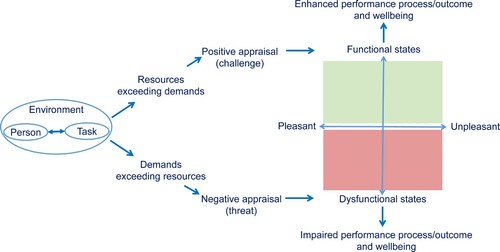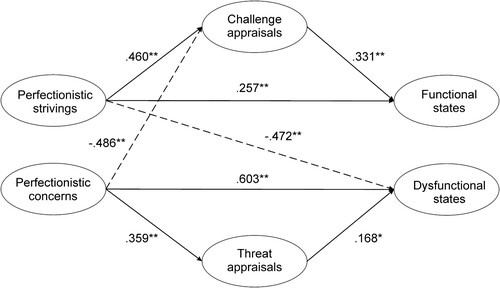Figures & data
Figure 1. Overview of the hypothesized relationships among antecedents (task, environment, and person), mediators (cognitive appraisals), functional and dysfunctional psychobiosocial states, and consequences for performance and wellbeing drawn from multi-states (MuSt) theory.

Table 1. Fit indices for the study variables derived from confirmatory factor analyses.
Table 2. Descriptive statistics, Pearson product-moment correlation coefficients, and reliability indices for the latent variables (N = 269).
Figure 2. Structural equation model illustrating interrelationships among perfectionism dimensions, competitive appraisals, and psychobiosocial states. *p < .05, **p < .001. N = 269. Standardized beta coefficients are presented. Solid lines represent significant positive paths and dash lines represent significant negative paths.

